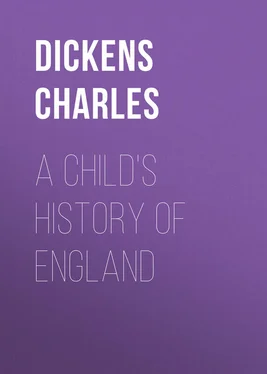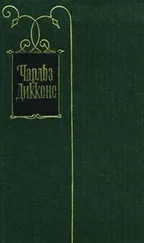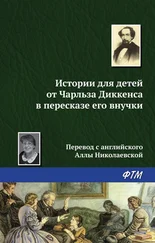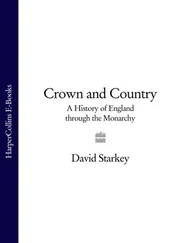Чарльз Диккенс - A Child's History of England
Здесь есть возможность читать онлайн «Чарльз Диккенс - A Child's History of England» — ознакомительный отрывок электронной книги совершенно бесплатно, а после прочтения отрывка купить полную версию. В некоторых случаях можно слушать аудио, скачать через торрент в формате fb2 и присутствует краткое содержание. Издательство: Иностранный паблик, Жанр: foreign_antique, foreign_prose, на английском языке. Описание произведения, (предисловие) а так же отзывы посетителей доступны на портале библиотеки ЛибКат.
- Название:A Child's History of England
- Автор:
- Издательство:Иностранный паблик
- Жанр:
- Год:неизвестен
- ISBN:нет данных
- Рейтинг книги:3 / 5. Голосов: 1
-
Избранное:Добавить в избранное
- Отзывы:
-
Ваша оценка:
- 60
- 1
- 2
- 3
- 4
- 5
A Child's History of England: краткое содержание, описание и аннотация
Предлагаем к чтению аннотацию, описание, краткое содержание или предисловие (зависит от того, что написал сам автор книги «A Child's History of England»). Если вы не нашли необходимую информацию о книге — напишите в комментариях, мы постараемся отыскать её.
A Child's History of England — читать онлайн ознакомительный отрывок
Ниже представлен текст книги, разбитый по страницам. Система сохранения места последней прочитанной страницы, позволяет с удобством читать онлайн бесплатно книгу «A Child's History of England», без необходимости каждый раз заново искать на чём Вы остановились. Поставьте закладку, и сможете в любой момент перейти на страницу, на которой закончили чтение.
Интервал:
Закладка:
I pause to think with admiration, of the noble king who, in his single person, possessed all the Saxon virtues. Whom misfortune could not subdue, whom prosperity could not spoil, whose perseverance nothing could shake. Who was hopeful in defeat, and generous in success. Who loved justice, freedom, truth, and knowledge. Who, in his care to instruct his people, probably did more to preserve the beautiful old Saxon language, than I can imagine. Without whom, the English tongue in which I tell this story might have wanted half its meaning. As it is said that his spirit still inspires some of our best English laws, so, let you and I pray that it may animate our English hearts, at least to this – to resolve, when we see any of our fellow-creatures left in ignorance, that we will do our best, while life is in us, to have them taught; and to tell those rulers whose duty it is to teach them, and who neglect their duty, that they have profited very little by all the years that have rolled away since the year nine hundred and one, and that they are far behind the bright example of King Alfred the Great.
CHAPTER IV – ENGLAND UNDER ATHELSTAN AND THE SIX BOY-KINGS
Athelstan, the son of Edward the Elder, succeeded that king. He reigned only fifteen years; but he remembered the glory of his grandfather, the great Alfred, and governed England well. He reduced the turbulent people of Wales, and obliged them to pay him a tribute in money, and in cattle, and to send him their best hawks and hounds. He was victorious over the Cornish men, who were not yet quite under the Saxon government. He restored such of the old laws as were good, and had fallen into disuse; made some wise new laws, and took care of the poor and weak. A strong alliance, made against him by Anlaf a Danish prince, Constantine King of the Scots, and the people of North Wales, he broke and defeated in one great battle, long famous for the vast numbers slain in it. After that, he had a quiet reign; the lords and ladies about him had leisure to become polite and agreeable; and foreign princes were glad (as they have sometimes been since) to come to England on visits to the English court.
When Athelstan died, at forty-seven years old, his brother Edmund, who was only eighteen, became king. He was the first of six boy-kings, as you will presently know.
They called him the Magnificent, because he showed a taste for improvement and refinement. But he was beset by the Danes, and had a short and troubled reign, which came to a troubled end. One night, when he was feasting in his hall, and had eaten much and drunk deep, he saw, among the company, a noted robber named Leof, who had been banished from England. Made very angry by the boldness of this man, the King turned to his cup-bearer, and said, ‘There is a robber sitting at the table yonder, who, for his crimes, is an outlaw in the land – a hunted wolf, whose life any man may take, at any time. Command that robber to depart!’ ‘I will not depart!’ said Leof. ‘No?’ cried the King. ‘No, by the Lord!’ said Leof. Upon that the King rose from his seat, and, making passionately at the robber, and seizing him by his long hair, tried to throw him down. But the robber had a dagger underneath his cloak, and, in the scuffle, stabbed the King to death. That done, he set his back against the wall, and fought so desperately, that although he was soon cut to pieces by the King’s armed men, and the wall and pavement were splashed with his blood, yet it was not before he had killed and wounded many of them. You may imagine what rough lives the kings of those times led, when one of them could struggle, half drunk, with a public robber in his own dining-hall, and be stabbed in presence of the company who ate and drank with him.
Then succeeded the boy-king Edred, who was weak and sickly in body, but of a strong mind. And his armies fought the Northmen, the Danes, and Norwegians, or the Sea-Kings, as they were called, and beat them for the time. And, in nine years, Edred died, and passed away.
Then came the boy-king Edwy, fifteen years of age; but the real king, who had the real power, was a monk named Dunstan – a clever priest, a little mad, and not a little proud and cruel.
Dunstan was then Abbot of Glastonbury Abbey, whither the body of King Edmund the Magnificent was carried, to be buried. While yet a boy, he had got out of his bed one night (being then in a fever), and walked about Glastonbury Church when it was under repair; and, because he did not tumble off some scaffolds that were there, and break his neck, it was reported that he had been shown over the building by an angel. He had also made a harp that was said to play of itself – which it very likely did, as Æolian Harps, which are played by the wind, and are understood now, always do. For these wonders he had been once denounced by his enemies, who were jealous of his favour with the late King Athelstan, as a magician; and he had been waylaid, bound hand and foot, and thrown into a marsh. But he got out again, somehow, to cause a great deal of trouble yet.
The priests of those days were, generally, the only scholars. They were learned in many things. Having to make their own convents and monasteries on uncultivated grounds that were granted to them by the Crown, it was necessary that they should be good farmers and good gardeners, or their lands would have been too poor to support them. For the decoration of the chapels where they prayed, and for the comfort of the refectories where they ate and drank, it was necessary that there should be good carpenters, good smiths, good painters, among them. For their greater safety in sickness and accident, living alone by themselves in solitary places, it was necessary that they should study the virtues of plants and herbs, and should know how to dress cuts, burns, scalds, and bruises, and how to set broken limbs. Accordingly, they taught themselves, and one another, a great variety of useful arts; and became skilful in agriculture, medicine, surgery, and handicraft. And when they wanted the aid of any little piece of machinery, which would be simple enough now, but was marvellous then, to impose a trick upon the poor peasants, they knew very well how to make it; and did make it many a time and often, I have no doubt.
Dunstan, Abbot of Glastonbury Abbey, was one of the most sagacious of these monks. He was an ingenious smith, and worked at a forge in a little cell. This cell was made too short to admit of his lying at full length when he went to sleep – as if that did any good to anybody! – and he used to tell the most extraordinary lies about demons and spirits, who, he said, came there to persecute him. For instance, he related that one day when he was at work, the devil looked in at the little window, and tried to tempt him to lead a life of idle pleasure; whereupon, having his pincers in the fire, red hot, he seized the devil by the nose, and put him to such pain, that his bellowings were heard for miles and miles. Some people are inclined to think this nonsense a part of Dunstan’s madness (for his head never quite recovered the fever), but I think not. I observe that it induced the ignorant people to consider him a holy man, and that it made him very powerful. Which was exactly what he always wanted.
On the day of the coronation of the handsome boy-king Edwy, it was remarked by Odo, Archbishop of Canterbury (who was a Dane by birth), that the King quietly left the coronation feast, while all the company were there. Odo, much displeased, sent his friend Dunstan to seek him. Dunstan finding him in the company of his beautiful young wife Elgiva, and her mother Ethelgiva, a good and virtuous lady, not only grossly abused them, but dragged the young King back into the feasting-hall by force. Some, again, think Dunstan did this because the young King’s fair wife was his own cousin, and the monks objected to people marrying their own cousins; but I believe he did it, because he was an imperious, audacious, ill-conditioned priest, who, having loved a young lady himself before he became a sour monk, hated all love now, and everything belonging to it.
Читать дальшеИнтервал:
Закладка:
Похожие книги на «A Child's History of England»
Представляем Вашему вниманию похожие книги на «A Child's History of England» списком для выбора. Мы отобрали схожую по названию и смыслу литературу в надежде предоставить читателям больше вариантов отыскать новые, интересные, ещё непрочитанные произведения.
Обсуждение, отзывы о книге «A Child's History of England» и просто собственные мнения читателей. Оставьте ваши комментарии, напишите, что Вы думаете о произведении, его смысле или главных героях. Укажите что конкретно понравилось, а что нет, и почему Вы так считаете.












